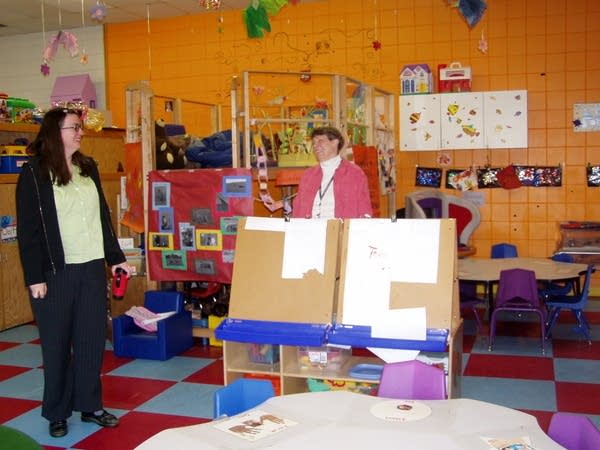Conference to push for investment in early childhood development
Go Deeper.
Create an account or log in to save stories.
Like this?
Thanks for liking this story! We have added it to a list of your favorite stories.

Federal Reserve Bank research director Art Rolnick, who is one of the leading voices pushing for early childhood programs, hopes this weekend's conference will, if nothing else, inspire additional new research to inform what he sees as some of the most important economic policy decisions.
"It's one thing to say we should invest more, it's another thing to say how should we do that. How early should you begin? Is it good enough to start at three or four or should we start at birth or prenatal for example? How critical is the type of program? Should these programs be universal or should we focus on at-risk children?"
Some of the most meaningful research on early childhood development stems from a handful of studies. The studies are longitudinal, meaning they follow a group of people over a period of time. Such research is hard to do. It spans years, even decades, to inform long-term outcomes.
The research has established connections, for instance, between low high school test scores and juvenile arrests, impaired educational progress and limited lifetime earning potential. It's quite another thing to link those outcomes with what was happening in a person's third year of life or even before.
Turn Up Your Support
MPR News helps you turn down the noise and build shared understanding. Turn up your support for this public resource and keep trusted journalism accessible to all.
The conference is an extension of the first one four years ago that established the argument that public investment in a person's early life pays the public back down the road. Rolnick contends every $1 spent before age three, earns $16 in savings later, through a reduced need for prisons, welfare and remedial and special education.
"It's not that you can't make a difference later on. But if you start earlier, that's where your best returns are." One analysis offered at the conference estimates that if Minnesota established universal preschool programs next year at an annual cost to taxpayers of $567 million, the program would break even in nine years and would reap benefits of $2.2 billion dollars a year above the cost of the program by 2050. The national annual benefit of such a program, the report contends, would be $780 billion dollars above the program costs by 2050.
Clearly, such calculations are not so universally accepted by taxpayers and those elected to make the decision whether public money goes to create jobs or subsidize daycare. Critics point out much of the long-term research relies on studies of a small number of people so drawing broad conclusions are prone to error.
That's one of the main reasons Rolnick champions more research. Since the first conference, he helped established a partnership with the University of Minnesota to form the Early Childhood Research Collaborative.
"We know we have public resources that are limited. The state's a good example. Even though we're a very wealthy state we know we have to make some tough decisions. The question is how best to invest them. And this kind of research, this kind of analysis that can give you a pretty good idea where the return is coming is going to be very useful."
Rolnick, along with the Minnesota Early Learning Foundation, is set to launch the first phase of a multi-year, privately-funded, $30 mllion experiment awarding scholarships to selected Minnesota families to access quality pre-natal and preschool programs.





